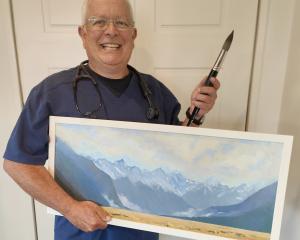Progress in reinstating clinical leadership to New Zealand hospitals will be gauged with the release of a health worker survey next week.
Dunedin health policy specialist Robin Gauld, of the University of Otago's Centre for Health Systems, led the "exhaustive" national project which involved 19 district health boards, the National Health Board and the Health Quality and Safety Commission.
Health Minister Tony Ryall will speak at the launch next Thursday in Wellington of the Clinical Governance Assessment Project.
Prof Gauld said yesterday the survey was the biggest of its kind attempted in New Zealand.
Of the 19 boards that participated, 25% of staff responded, equating to about 10,300 respondents.
The survey gauged progress implementing In Good Hands, a 2009 report on clinical leadership Mr Ryall instructed boards to implement.
While not high profile, it was "explicit behind-the-scenes" Government policy, Prof Gauld said.
He could not give too much away about the survey, but said it showed improvements and revealed variability between district health boards.
In 2010, Prof Gauld surveyed health specialists through the Association of Salaried Medical Specialists, which raised concern there was too little progress.
Taking nearly two years, the clinical governance assessment project involved face-to-face interviews with more than 160 clinical leaders and managers, as well as the survey.
New Zealand was playing "catch-up" in terms of clinical leadership. It went further than most countries when it brought in "generic" managers to run hospitals.
Both the National and Labour parties favoured corporate managers in health, believing they alone made "proper decisions", Prof Gauld said.
Education did not go down the same route and, as a consequence, universities and schools were run by educators, not corporate managers.
Prof Gauld has a book out this month looking at the effectiveness of elected district health boards. He co-authored Democratic Governance in Health: Hospitals, Politics and Health Policy in New Zealand with Miriam Laugesen, of Columbia University in New York.
In an "unusual arrangement", health board members were elected, but accountable to the Government rather than the public.
Prof Gauld's book suggests the public should only elect two or three health board members, who could then advocate for the public interest, but be voted down by the board.
At present, elected members form the majority, but are bound by government dictate.












